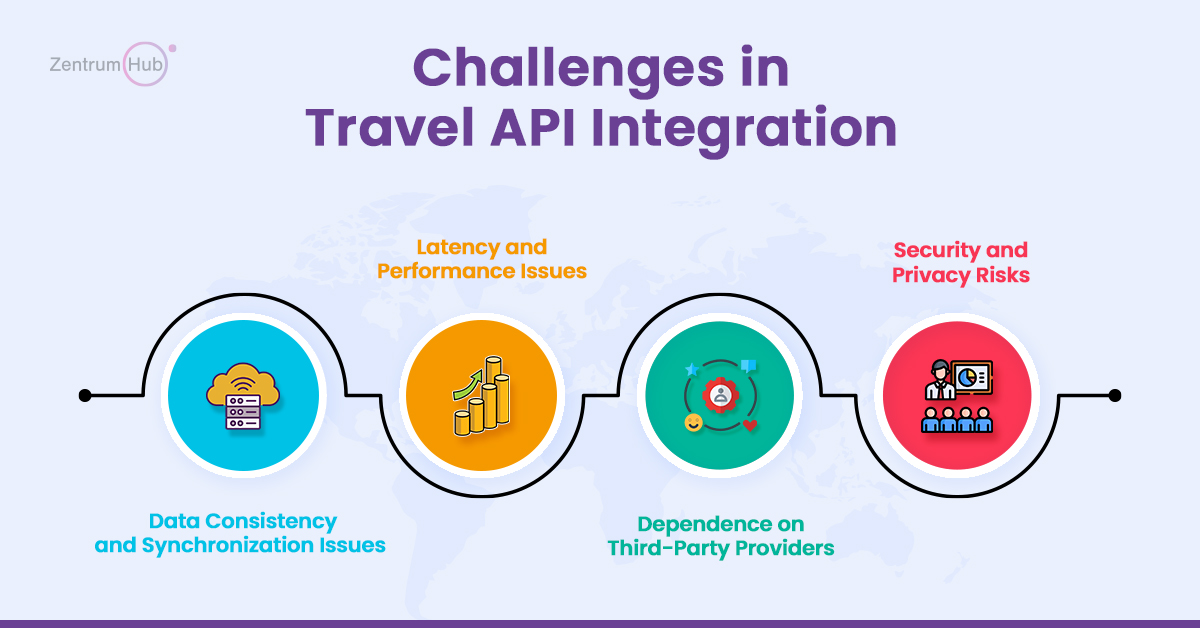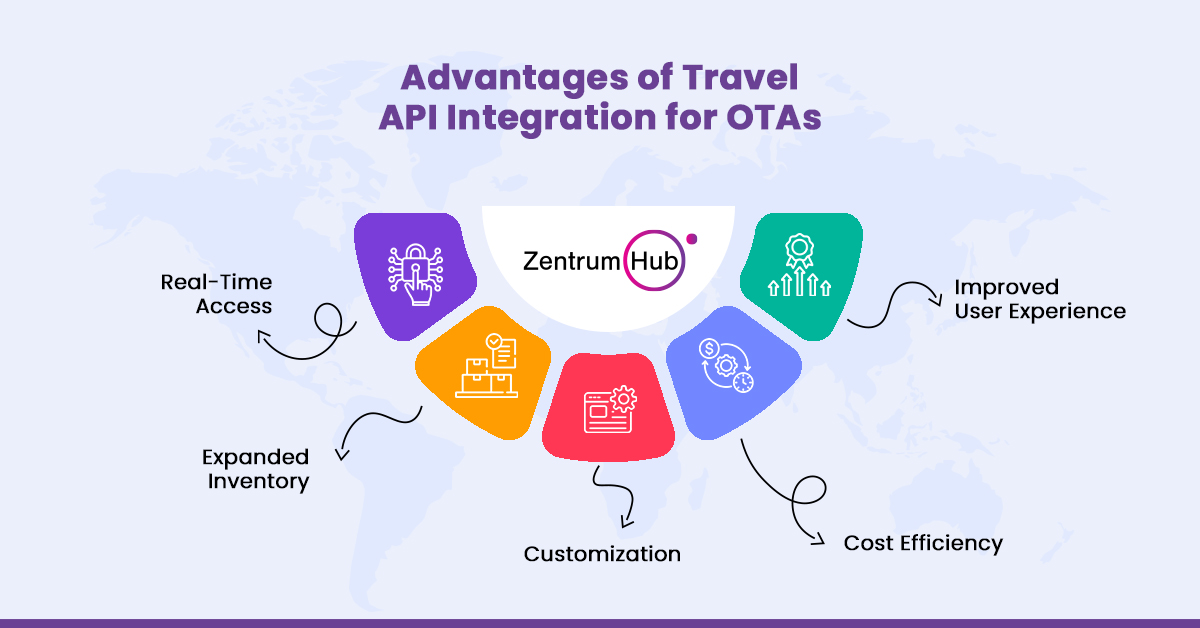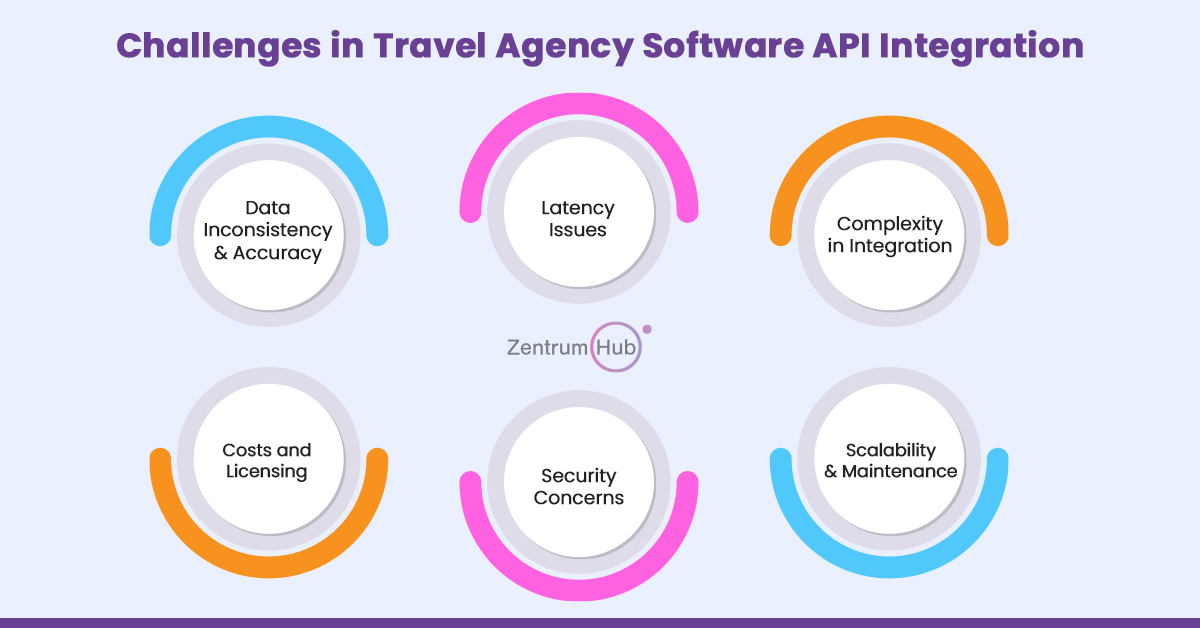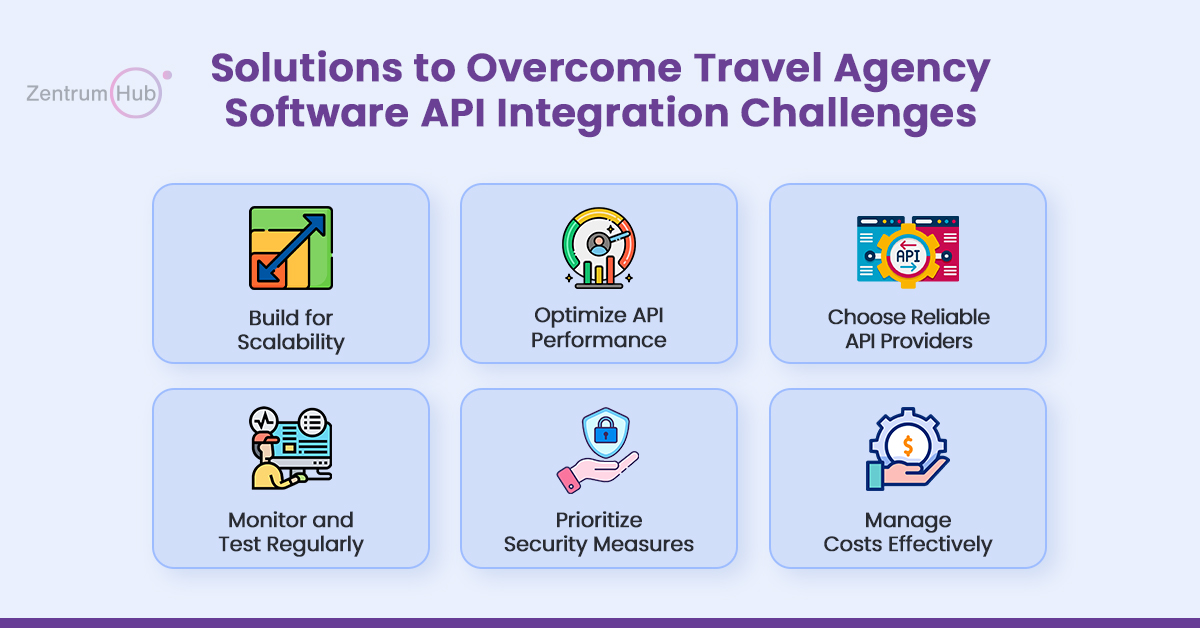
APIs allow travel agencies to connect with various suppliers, such as airlines, hotels, and car rental services, to provide real-time availability, pricing, and booking functionality.
While the benefits are undeniable, implementing API integrations comes with its own set of challenges.
For example, a travel agency software integrated with travel APIs can access real-time travel schedules, seat availability, and fare details from various airlines. Similarly, hotel APIs provide room availability, rates, and booking options.
APIs play a vital role in automating workflows, reducing manual processes, and offering customers seamless booking experiences.
With APIs, travel agencies can aggregate services from multiple vendors into one interface, enhancing efficiency and customer satisfaction.

Before diving into the challenges, it’s important to understand the key advantages of travel API integration:

Despite the benefits, travel API integration poses several challenges that can hinder its successful implementation:
APIs rely on suppliers to provide accurate and consistent data. Discrepancies in pricing, availability, or booking details can lead to errors, resulting in customer dissatisfaction.
High latency during API calls can slow down response times, causing delays in displaying results to customers. This is especially problematic during peak travel seasons or when multiple users are accessing the system simultaneously.
Integrating multiple APIs from different suppliers can be technically complex. Each API has its own structure, protocols, and data formats, requiring significant customization and development efforts.
Travel agencies are highly dependent on API providers for maintaining data accuracy, uptime, and overall performance. Downtime or errors on the provider’s end can directly impact the agency’s operations.
API providers often charge licensing fees or commission-based charges, which can add up, especially when integrating multiple APIs. Agencies must carefully manage these costs to maintain profitability.
APIs handle sensitive customer information, such as payment details and personal data. Any vulnerabilities in API integration can expose this data to security threats like hacking or unauthorized access.
As the business grows, agencies need their software to scale and handle increased traffic and API requests. Maintaining API integrations, especially when providers update their systems, can be resource-intensive.

For successful API integration, travel agencies need strategic planning and the right tools. Here are practical solutions to address the challenges mentioned above:
A middleware layer acts as a bridge between the travel agency software and multiple APIs. It standardizes data formats, protocols, and workflows, making integration easier and more efficient.
Use caching mechanisms and load balancing to reduce latency and improve response times. Caching stores frequently accessed data, such as popular travel routes or hotel availability, reducing the need for repeated API calls.
Partner with reputable API providers known for their reliability, uptime, and support services. Perform due diligence by checking reviews, uptime statistics, and available support channels.
Implement monitoring tools to track API performance, uptime, and error rates. Regular testing helps identify potential issues and ensures seamless integration.
Secure API connections with encryption protocols like HTTPS and use authentication mechanisms such as OAuth 2.0 to protect sensitive data. Conduct regular security audits to identify and fix vulnerabilities.
Negotiate pricing with API providers and evaluate usage-based models to optimize costs. Consider using free or lower-cost APIs for less critical services.
Invest in cloud-based infrastructure that can scale with demand. Cloud platforms like AWS, Azure, or Google Cloud offer tools for scaling API integrations as your business grows.
Travel API integration is a game-changer for travel agencies, enabling them to deliver seamless, real-time services to customers.
However, challenges like data inconsistencies, high latency, and security concerns must be addressed strategically.
By leveraging middleware solutions, optimizing performance, partnering with reliable providers, and prioritizing security, agencies can overcome these hurdles and unlock the full potential of API integrations.
As the travel industry continues to evolve, robust API integration will remain a cornerstone of efficient and customer-centric operations, ensuring that travel agencies stay ahead in an increasingly competitive market.
We use cookies to ensure that we give you the best experience on our website. If you continue to use this site we will assume that you are happy with it.
